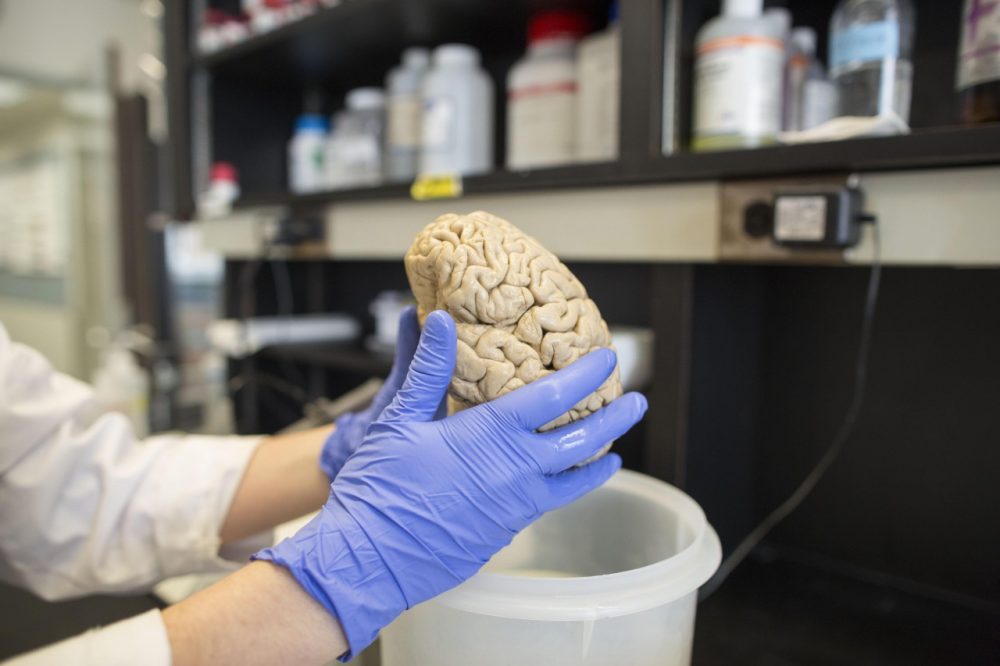Advertisement
Mouse Study Links Gut Bugs And Alzheimer's Disease

We tend to think about Alzheimer’s disease as affecting our brains. But as we try to arm ourselves against it, maybe we should be worrying about our bowels as well.
According to a recent study done at the University of Chicago Medical Center, mice who underwent a long course of antibiotics had more diversity in the community of bacteria living in their guts than did mice who did not. They also showed significantly fewer "amyloid plaques” — a key element of Alzheimer's — in their brains.
"I think this is opening up an entirely exciting, albeit unexpected, avenue of research that connects the microbiome, innate immunity and neuroinflammation," said study senior author Sangram Sisodia in an email. "We have discovered a population of bacteria that seem to impact on amyloid pathology."
"There is much to be learned," he added, but he is optimistic that the findings may lead both to additional basic science and eventually to possible treatments.
Definitely not among those treatments: Using antibiotics to try to fend off Alzheimer's. From the press release:
"We don't propose that a long-term course of antibiotics is going to be a treatment — that's just absurd for a whole number of reasons," said Myles Minter, a postdoctoral scholar in the Department of Neurobiology at UChicago and lead author of the study. "But what this study does is allow us to explore further, now that we're clearly changing the gut microbial population and have new bugs that are more prevalent in mice with altered amyloid deposition after antibiotics."
We tend to think of bacteria as the bad guys when it comes to keeping healthy. We use industrial cleaners to obliterate them from our hands and countertops. But bacteria, especially those that live in our gut, can have beneficial effects — including, possibly, helping us combat degenerative diseases like Alzheimer's, some researchers hypothesize.
The study's findings did not mean that the antibiotics themselves were fighting Alzheimer’s disease. Instead, the antibiotics were a tool to create a diverse bacterial community in the gut of these mice. It was that diverse community that helped promote brain health, it seems, and may be able to provide an immune boost that protects against Alzheimer’s.